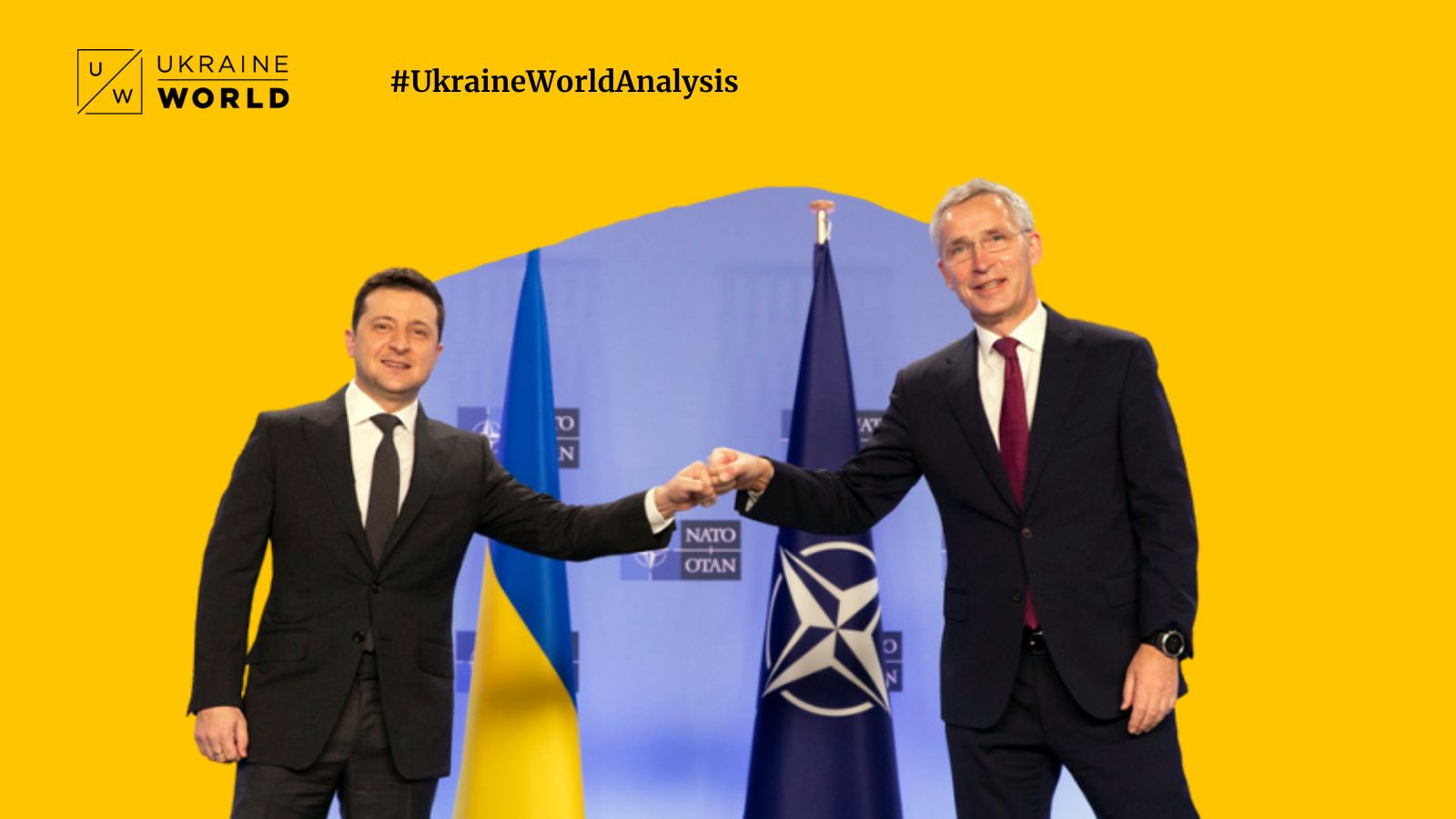UkraineWorld spoke to Hanna Shelest, director of Security Programmes at the Ukrainian Prism Foreign Policy Council.
Key points — in our brief, #UkraineWorldAnalysis:
1. On Ukraine joining NATO
- It is hardly possible for Ukraine to join NATO during active military operations. The reason is not limited by mere technicalities, but by the North Atlantic Treaty itself. The Treaty states clearly that a candidate country must contribute to transatlantic security. Accordingly, when there are active hostilities, disputes arise: is the candidate country protecting Europe, or will it bring additional problems? Therefore, at least until an armistice is signed, it is unlikely that our NATO partners will take this step.
- An accelerated admission procedure is possible. The foundational documents of the North Atlantic Treaty from 1949 agreement provide a simple procedure: countries express their wish to join NATO, and then member states invite it by voting unanimously. The idea of the Membership Action Plan appeared in 1999 and was used for Eastern European countries. It was not a mandatory requirement. The MAP is an auxiliary document meant to help better implement the reforms of the countries seeking membership. Its essence lies in advice and assistance, not extortion. These are not the Copenhagen criteria which we must meet before joining the European Union.
- If we look at the essence of what was included in MAPs and what is contained in our annual National Program, these are almost identical documents. The annual National Program serves as a supporting document for Ukrainian NATO membership. It includes the same reforms and the same mechanisms for increasing compatibility and transitioning to NATO standards. The MAP is a national, not an international document.
- If the absence of a MAP is considered an accelerated procedure, then it can be called that. But from a legal point of view, this is not necessary. The standard remains: invitation, then signing of the protocol, and finally ratification.
2. On Ukraine`s application to NATO
- Our application was an important political act to demonstrate the unchanging nature of our position both domestically and internationally. Recall in March, when there was a lot of talk about possible Ukrainian neutrality. This was needed for the domestic audience. There is no longer talk of alternatives.
- Procedurally, the application can be either oral or written. The Poles did not write letters to join NATO, but the Swedes did.
- Ukraine recorded its desire to join back in the 2000s (let us recall the Letter of the Three when we started an intensified dialogue), which is part of the procedure, and when we established it in our Constitution.
3. On the Kyiv Security Compact
- The Kyiv Security Compact is an additional, temporary mechanism on the way to NATO membership. Member status is a long-term prospect. Questions about the content of the Kyiv Security Compact and the countries willing to sign onto it.
- As soon as Sweden and Finland indicated their willingness to become NATO members, they almost immediately signed security agreements with Britain. It was a clear message.
- The main thing is that the Kyiv Security Compact should not be used to claim Ukraine is uncertain about NATO membership, so as not to distract attention from the prospects of membership itself. The Kyiv Security Compact and Ukraine's NATO aspirations are not contradictory.
4. On whether Ukraine`s application could be a preventive measure
- It is unlikely that our application could be used as a countermeasure against the potential Russian use of a weapon of mass destruction in time for the July summit. Ukraine has other mechanisms to resort to should Russia use a nuclear weapon, from the UN Convention on the Nuclear Non-Proliferation Treaty to the Budapest Memorandum. It should be noted that the memorandum is not a treaty and is not binding if we talk about guarantees. However, it is very clear on the issue of forbidding the use of nuclear weapons in Ukraine. This will be enough for our partners.
This material was prepared with financial support from the International Renaissance Foundation.
DARIA SYNHAIEVSKA, ANALYST AND JOURNALIST AT UKRAINEWORLD
Hanna Shelest, director of Security Programmes at the Ukrainian Prism Foreign Policy Council

